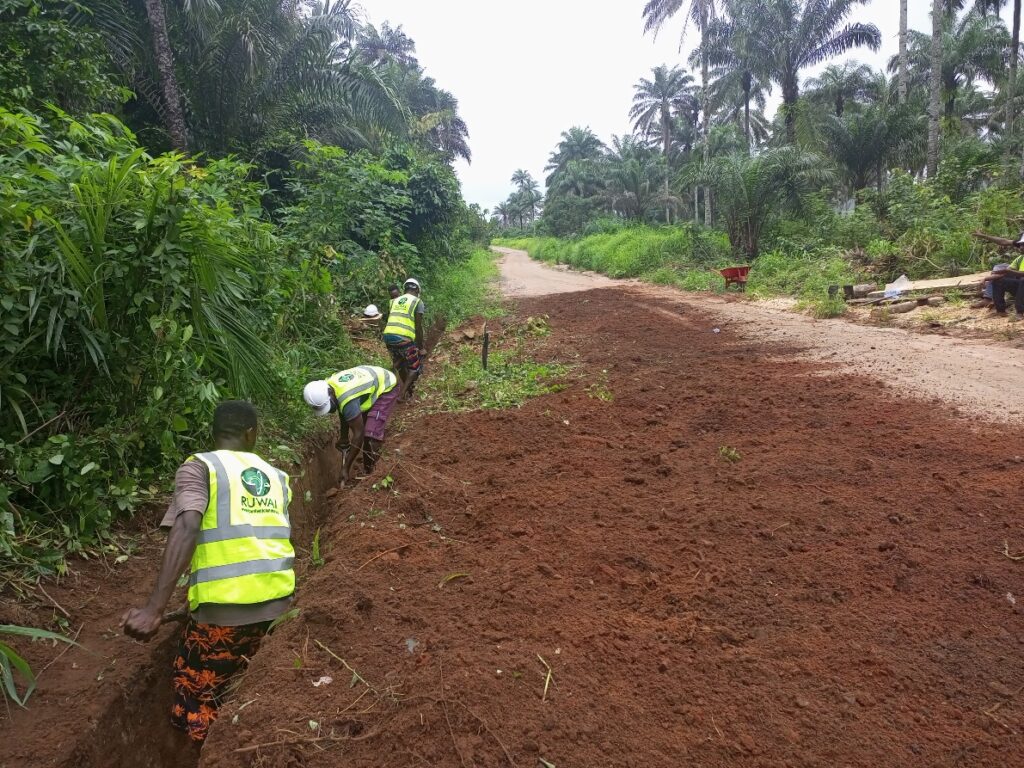Developing Resilience in Rural Communities: Growth Mindset Practices to Face Local Challenges

Understanding Resilience in Rural Nigeria
Rural communities across Nigeria are often at the mercy of various challenges, including economic instability, inadequate healthcare, and environmental degradation. However, within these communities lies a powerful resource: resilience. This innate strength allows them to adapt and bounce back from hardships. By adopting a growth mindset, residents can capitalize on their resilience, turning barriers into stepping stones towards a brighter future.
The Path to Building Resilience
Building resilience is not merely about coping with difficulties; it’s about embracing change, fostering innovation, and mobilizing resources effectively. Here are some critical strategies:
- Education and Training: By offering workshops and vocational training, communities can equip individuals with new skills tailored to current market needs. For instance, agricultural training programs that introduce sustainable farming practices could drastically increase yields and food security.
- Community Engagement: Encouraging local participation in decision-making processes empowers residents. Structured forums can be established, allowing individuals to voice their concerns, propose solutions, and foster a sense of ownership of local projects.
- Networking: Forming alliances with neighboring communities enhances mutual support systems. For example, a coalition of farmers can share insights and resources, creating a network of strength that can withstand economic pressures.
Transforming Obstacles into Opportunities
As global challenges like climate change and economic fluctuations increasingly affect rural regions, developing a resilient mindset becomes crucial for survival and growth. The following practices can significantly enhance community resilience:
- Problem-Solving Workshops: Regular training sessions aimed at creative problem-solving can stimulate innovation. For example, workshops could explore alternative crops that are more drought-resistant, allowing farmers to adapt to unpredictable weather patterns.
- Support Groups: Establishing safe spaces for community members to share experiences fosters solidarity. Support groups can provide emotional backing and resources to navigate personal and collective challenges.
- Resource Sharing: Collaborating within the community to pool resources can lead to infrastructural improvements. This might include sharing machinery, creating cooperative credit unions, or accessing communal land for collective farming practices.
Wrapping Up the Journey
By integrating these growth mindset practices into daily life, rural Nigerian communities can create an environment where resilience not only survives but thrives. This transformative journey may come with trials, yet the rewards—such as increased food security, improved livelihoods, and stronger social bonds—are invaluable. As these communities embark on this path toward empowerment, they illuminate the broader narrative of adaptability in the face of adversity, demonstrating to the world that resilience is not merely a reaction to challenges, but a proactive approach to shaping a sustainable future.
SEE ALSO: Click here to read another article

Fostering a Growth Mindset in Rural Nigeria
A growth mindset, a term popularized by psychologist Carol Dweck, embodies the belief that skills and intelligence can be developed through dedication and hard work. This mentality is crucial for rural communities in Nigeria, where adversity is often a part of daily life. By cultivating a growth mindset, community members can transform challenges into learning experiences, thereby enhancing their resilience. Understanding the principles of this mindset is the first step toward fostering self-improvement and community progress.
Core Principles of a Growth Mindset
Cultivating a growth mindset in rural communities involves several core principles. Emphasizing these principles can have transformative effects:
- Embrace Challenges: Rather than shying away from obstacles, community members should view them as opportunities for growth. The agricultural sector, for instance, can benefit from new farming techniques when faced with the challenges of climate change and pest infestations.
- Learn from Failures: Reframing failures as learning moments is essential. A failed crop season can lead to insights about soil management or pest control, informing better practices for the future.
- Value Feedback: Constructive criticism is a vital component of growth. Establishing avenues for feedback can help community members refine their methods and bolster their initiatives.
- Practice Perseverance: Developing resilience calls for persistence. Encouraging community members to maintain their efforts in the face of setbacks can instill a sense of determination and strength.
Embedding Resilience in Local Culture
Integrating a growth mindset into the fabric of rural life requires a shift in cultural perspective. This can be facilitated through local storytelling, where success stories from community members create role models. For example, sharing testimonies from farmers who have successfully adapted their practices can inspire others to experiment and innovate. Moreover, schools and community centers can serve as venues for educational programs focused on resilience-building practices, further embedding these values in local culture.
Promoting Collaboration and Support
Strengthening communal ties through collaboration can significantly enhance resilience. When individuals come together to support one another, they create a network that promotes both emotional well-being and resource-sharing. Initiatives such as joint community gardening projects can generate not only food security but also collective problem-solving capabilities when faced with challenges like droughts. These collaborative efforts signify a commitment to overcoming obstacles together, reinforcing community solidarity.
In conclusion, fostering a growth mindset in rural Nigerian communities sets the stage for developing resilience. By embracing challenges, learning from failures, valuing feedback, and promoting perseverance, communities can navigate the turbulent waters of change. Implementing these principles not only prepares them for immediate hurdles but also paves the way for sustainable long-term development, ensuring that they are not just survivors in a harsh environment but are thriving contributors to a more stable and prosperous future.
| Category | Details |
|---|---|
| Community Engagement | Fosters collaboration among residents, enhancing problem-solving capabilities. |
| Skill Development | Promotes learning necessary for adaptation to changing environments. |
| Resource Optimization | Encourages local resource utilization, reducing dependency on external aid. |
| Resilience Training | Equips individuals with tools to manage stress and adversity effectively. |
As rural communities navigate the complexities of modern challenges, the integration of a growth mindset becomes essential. Emphasizing community engagement not only cultivates collaboration among residents but also enhances their collective problem-solving capabilities. This communal approach is fundamental for addressing local issues. Moreover, a focus on skill development allows residents to equip themselves with the necessary tools to adapt to ever-changing environmental and economic challenges. Communities embracing resource optimization can significantly benefit by maximizing local resources, thereby decreasing their dependency on external assistance.The importance of resilience training cannot be overstated; imparting techniques to manage stress enables individuals to tackle adversity head-on. By adopting these growth mindset practices, rural communities can build a foundation that not only withstands local challenges but thrives despite them. Such approaches are vital for empowering residents and ensuring a sustainable future.
ADDITIONAL INSIGHTS: Expand your understanding here
Harnessing Local Knowledge and Resources
In the quest to develop resilience in rural communities, particularly in Nigeria, one of the most powerful tools available is the rich pool of local knowledge and resources. This encompasses the traditional wisdom that has been passed down through generations, as well as the adaptive practices that have evolved in response to local challenges. By tapping into this invaluable resource, communities can build a robust foundation for a growth mindset.
For instance, local farmers often possess intricate knowledge of their environment, including weather patterns, soil types, and crop rotations that traditional education may overlook. Utilizing community-led workshops to share this knowledge can foster collaboration and innovation. These gatherings not only empower community members but also instill a sense of pride and ownership over local agricultural practices, which can lead to improved food security. Beyond farming, integrating local craft traditions into the economic framework can provide alternative sources of income, enhancing community resilience against economic shocks.
Innovative Solutions for Sustainable Practices
As rural communities in Nigeria face challenges from climate change, food scarcity, and economic limitations, investing in innovative solutions for sustainable practices becomes critical. Initiatives like community resource centers equipped with tools and technologies can play a pivotal role. These centers can serve as hubs for education on sustainable farming techniques, such as agroforestry and integrated pest management, which help in reducing dependence on chemical inputs while maintaining soil health.
Sharing success stories of farmers who have adopted innovative methods can encourage others to follow suit. For example, the introduction of drought-resistant crop varieties has allowed many farmers to combat the adverse effects of climate conditions. Investing in local research and promoting partnerships with agricultural institutions can equip communities to develop and validate such innovations further.
Empowering Youth Through Education and Skill Development
The younger generation is vital to the sustainability of rural communities. Empowering youth through education and skill development fosters a culture of resilience and innovation. Offering targeted programs that focus on leadership, entrepreneurship, and vocational skills can help youth envision a future beyond immediate challenges. For instance, agribusiness training can equip young people with the skills needed to start their small businesses, further driving economic growth within the community.
Additionally, collaboration with local NGOs and government institutions can enhance these educational initiatives. Workshops, field trips, and mentorship programs designed to bridge the gap between traditional practices and modern techniques can inspire creativity and critical thinking among youths. Such efforts not only nurture a sense of responsibility but also encourage an outlook that embraces change and challenges.
Strengthening Community Leadership and Governance
Leadership plays a pivotal role in cultivating a resilience-oriented culture. Strengthening community leadership and governance is essential in guiding collective action and ensuring that the principles of a growth mindset are embraced. Training programs for local leaders on effective communication, conflict resolution, and inclusive governance can create a more cohesive community. Ensuring that all voices, especially those of women and youth, are heard in decision-making processes can reflect a more equitable society.
Furthermore, establishing community monitoring systems to track local resources and developmental projects can enhance accountability and engagement. Active involvement in local governance fosters transparency and encourages community members to contribute ideas and solutions to common challenges. This approach nurtures resilience and promotes the idea that collective effort can produce meaningful results, transforming local challenges into opportunities.
SEE ALSO: Click here to read another article
Conclusion: Building a Resilient Future for Rural Communities
In conclusion, the journey towards developing resilience in rural communities hinges on cultivating a growth mindset that fosters adaptability and innovation in the face of local challenges. By leveraging local knowledge, embracing innovative practices, empowering youth, and strengthening community leadership, rural areas in Nigeria can transform obstacles into opportunities.
Effective community engagement, where all members contribute to decision-making and share responsibility, is essential in creating a united front against challenges such as climate change and economic instability. As we have seen, initiatives that promote sustainable agricultural practices not only enhance food security but also bolster the local economy by weaving traditional craftsmanship into the rural economic framework.
Moreover, investing in youth education and skill development stands as a crucial pillar of resilience. By equipping the younger generation with the tools they need, communities can ensure that they are not just surviving but thriving. Ultimately, the integration of a growth mindset in every aspect of rural life—from farming to governance—instills hope and encourages a proactive approach to change.
As we look to the future, it is vital to recognize that the strength of rural communities lies in their ability to draw upon their rich history while embracing new ideas. Through collective effort and shared determination, rural communities can pave the way for a sustainable and resilient future, proving that even in the face of adversity, growth is possible.


